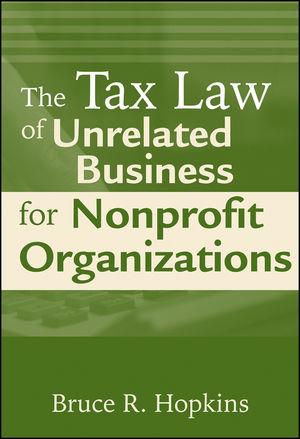The Tax Law of Unrelated Business for Nonprofit OrganizationsISBN: 978-0-470-50084-2
Paperback
408 pages
August 2009
 This is a Print-on-Demand title. It will be printed specifically to fill your order. Please allow an additional 10-15 days delivery time. The book is not returnable.
|
||||||
The Tax Law of Unrelated Business for Nonprofit Organizations has everything you need to help you understand and interpret the general rules, modifications, and exceptions of the tax law of unrelated business for nonprofit organizations—including the unrelated debt-financed income rules, commercial activities, use of separate entities, and reporting requirements.
This comprehensive resource equips you to fully analyze your organization's operations from the unrelated business perspective. You'll focus on details pertaining to the unrelated business income tax return (Form 990-T) and its many schedules. In addition, you'll get six appendices and tables to help round out your analysis. This authoritative guide explores every facet of tax law applicable to unrelated business for nonprofit organizations, including the rules governing:
-
Publishing
-
Advertising
-
Corporate sponsorships
-
Gift shops
-
Restaurants and cafes
-
List rentals and exchanges
-
Trade shows
-
Travel tours
-
Real property development
-
Research programs
-
Gambling and gaming
-
Endorsements
-
Convenience businesses
-
Foreign source income
This must-have resource is filled with explanations and illustrations and hands-on guidance from Bruce R. Hopkins, the leading authority in nonprofit law. Its in-depth information shows you how to thoroughly and authoritatively manage unrelated business activities and protect your organization's tax-exempt status.



